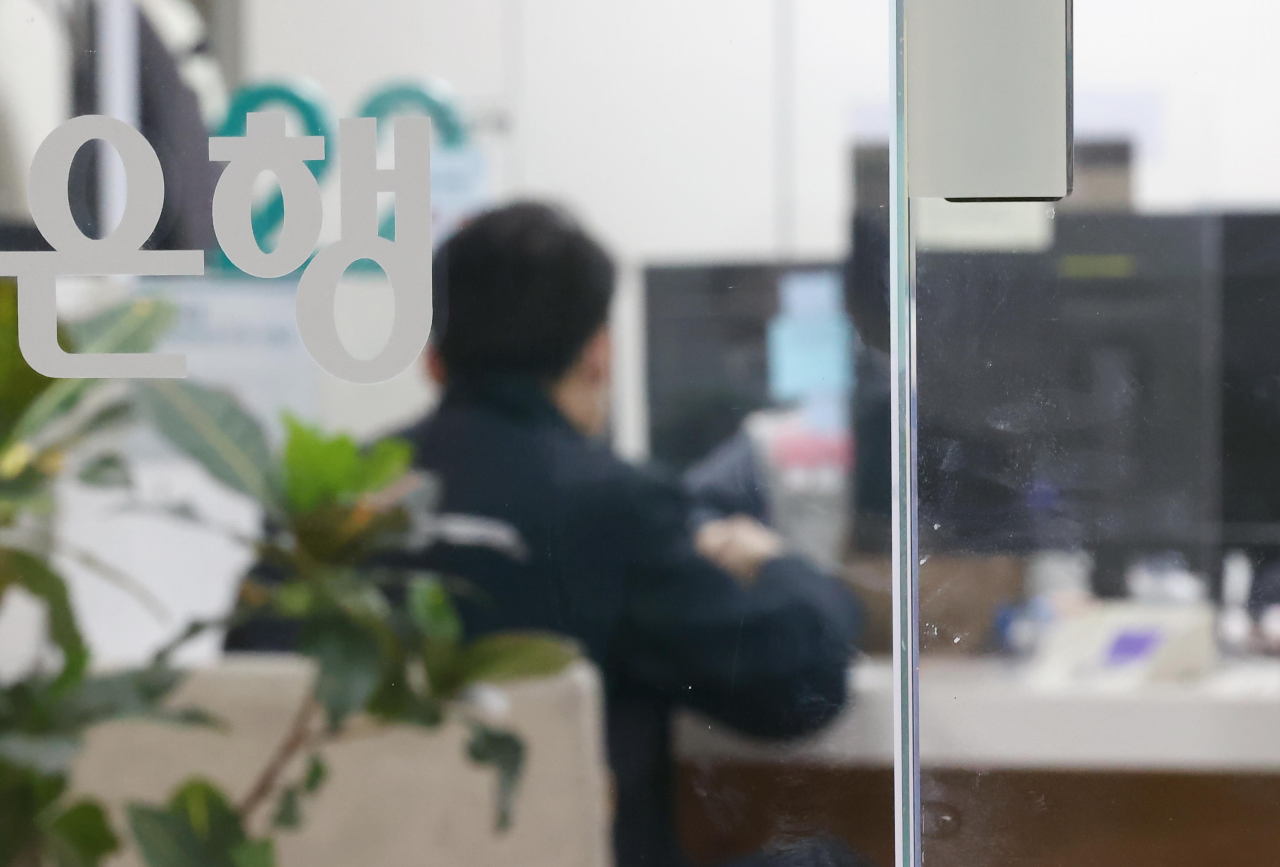Banks raise loan limits as household debt growth curbs
By Jung Min-kyungPublished : March 28, 2022 - 14:53

South Korean banks have started raising the maximum amount consumers can borrow under a loan to the level before financial regulators intervened to curb the nation’s household debt growth.
The move comes as the nation’s household debt growth has recently shown signs of slowing down.
As of Monday, the top four banks here – KB Kookmin, Shinhan, Hana and Woori – have either started raising the limits for its overdraft accounts or its most popular loans for customers who are salaried employees. The limit for their overdraft accounts were all capped at 50 million won ($40,700), while salaried employees could only borrow up to 150 million won since last year.
Woori has decided to raise the account limit of some of its products from the current 50 million won to 30 million won tops, starting April 4. The limit for its most popular loan for salaried employees offered through its mobile banking app, Woori Won Banking, will be doubled from the current 100 million won to 2 million won on the same day.
KB Kookmin has already raised the cap for its overdraft account offered to high income professionals such as doctors and lawyers to 150 million won, and the same product offered to salaried employees to 100 million won on March 7.
Its industry rival Hana has also raised the limit of its eight most popular overdraft accounts, including Hana 1Q Credit Loan, which it raised to 150 million won earlier this year.
Shinhan is currently considering the timeline to follow its rivals’ footsteps and the decision to raise the loan limit could come as early as next week, according to industry sources.
Financial authorities have ordered banks to adopt stricter lending rules since 2020, with the Bank of Korea’s record-low interest rate at the time also bringing down borrowing rates, thus attracting more borrowers. The BOK ended 15-months of its record-low interest rate of 0.5 percent in August last year by carrying out its first pandemic-era rate hike. Since then, the BOK has carried out two additional rate hikes in November and January this year, pushing up the base rate to the current 1.25 percent.
Asia’s fourth-largest economy’s household debt hit a fresh high in the fourth quarter of last year, but grew at a slower pace from the previous quarter due to tightening lending rules, a central bank data released last month showed.
Household credit came to 1,862.1 trillion won as of end-December, up 1 percent, or 19.1 trillion won, on-quarter, according to the data. But the growth slowed from a 1.9 percent on-quarter increase in the third quarter.
The move comes as the nation’s household debt growth has recently shown signs of slowing down.
As of Monday, the top four banks here – KB Kookmin, Shinhan, Hana and Woori – have either started raising the limits for its overdraft accounts or its most popular loans for customers who are salaried employees. The limit for their overdraft accounts were all capped at 50 million won ($40,700), while salaried employees could only borrow up to 150 million won since last year.
Woori has decided to raise the account limit of some of its products from the current 50 million won to 30 million won tops, starting April 4. The limit for its most popular loan for salaried employees offered through its mobile banking app, Woori Won Banking, will be doubled from the current 100 million won to 2 million won on the same day.
KB Kookmin has already raised the cap for its overdraft account offered to high income professionals such as doctors and lawyers to 150 million won, and the same product offered to salaried employees to 100 million won on March 7.
Its industry rival Hana has also raised the limit of its eight most popular overdraft accounts, including Hana 1Q Credit Loan, which it raised to 150 million won earlier this year.
Shinhan is currently considering the timeline to follow its rivals’ footsteps and the decision to raise the loan limit could come as early as next week, according to industry sources.
Financial authorities have ordered banks to adopt stricter lending rules since 2020, with the Bank of Korea’s record-low interest rate at the time also bringing down borrowing rates, thus attracting more borrowers. The BOK ended 15-months of its record-low interest rate of 0.5 percent in August last year by carrying out its first pandemic-era rate hike. Since then, the BOK has carried out two additional rate hikes in November and January this year, pushing up the base rate to the current 1.25 percent.
Asia’s fourth-largest economy’s household debt hit a fresh high in the fourth quarter of last year, but grew at a slower pace from the previous quarter due to tightening lending rules, a central bank data released last month showed.
Household credit came to 1,862.1 trillion won as of end-December, up 1 percent, or 19.1 trillion won, on-quarter, according to the data. But the growth slowed from a 1.9 percent on-quarter increase in the third quarter.












![[Today’s K-pop] BTS pop-up event to come to Seoul](http://res.heraldm.com/phpwas/restmb_idxmake.php?idx=644&simg=/content/image/2024/04/17/20240417050734_0.jpg&u=)





![[KH Explains] Hyundai's full hybrid edge to pay off amid slow transition to pure EVs](http://res.heraldm.com/phpwas/restmb_idxmake.php?idx=652&simg=/content/image/2024/04/18/20240418050645_0.jpg&u=20240419100350)

